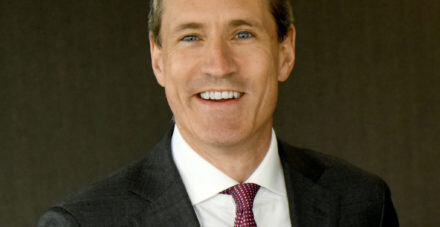
July 26, 2019
Executives in the real estate industry have given a cautious welcome to Boris Johnson’s election as the UK’s new prime minister – with one going so far as to suggest he could “provide the spark the commercial property industry has been seeking”.
Johnson was elected leader of the Conservative Party and prime minister on Tuesday, beating rival Jeremy Hunt by 92,153 votes to 46,656.
Although the UK’s exit from the European Union will loom largest on Johnson’s to-do list, property players are hopeful that he will also move to address some of the challenges facing their sector.
“Boris has the opportunity to bring new energy and creativity to initiatives of critical, national importance, such as housing and the NHS,”
said Pete Gladwell, head of public sector partnerships at Legal & General.
“It’s critical that the ‘incubus’ doesn’t become the Medusa; there’s a risk that Brexit will fossilise progress in all other departments.”
Alex Price, chief executive of Palmer Capital, an investment firm with more than £880m in assets under management, said he supported Johnson’s proposals to raise the stamp duty threshold, although he added that raising the threshold from £125,000 to £500,000 may be too high.
“I would like to see the threshold raised to up to £300,000 so we have a balance between affordability of housing and the revenue needs of the Treasury.”
He added that Johnson’s proposals to lower the top rate of stamp duty from 12% to 7% “may drive the prime end of the market at a time when we should be addressing the lack of affordability for 99% of the UK population, not for the richest parts of society”.
Johnson’s track record as London mayor and attendance at one of the world’s largest property conferences should bode well for his approach to the sector, argued Jonathan Harris of property consultancy Harris Associates.
“Based on his pro-business stance as London mayor and active participation at MIPIM, I would envisage a more robust environment for the commercial property industry based on a series of broader tax cuts and infrastructure projects throughout the UK – providing both boosted confidence and capital injections,” Harris said.
Boris bounce
Evans Randall Investors chairman John Slade is hopeful of what he calls a “Boris bounce” and a strong final quarter to the year for the UK real estate sector:
“Whatever you make of his politics, Boris promises to be decisive and the best candidate for business.”
However, industry figures agree that it will be Johnson’s approach to Brexit that most influences the sector.
“The prolonged uncertainty surrounding Brexit is hitting the real estate business for both advisers and investors,” said Alistair Subba-Row, senior partner at Farebrother. “Investment transaction levels are significantly down on the same period last year and it’s hard to see how the UK will reach 50% of 2018 figures by the 2019 year end.”
Johnson campaigned for the premiership on an aim of leaving the EU by the current deadline of 31 October, with or without a deal. Harris called for Johnson to “conclude a deal quickly to avoid further uncertainty and malaise”, which he said could lead to an upturn in UK property investment.
“A decisive approach would facilitate equity currently ‘sitting on the sidelines’ on a ‘wait-and-see’ approach to re-enter the market, providing a substantial capital inflow,” he added. “Boris may provide the spark the commercial property industry has been seeking.”
Impossible deadline
Knight Frank Investment Management chief executive Kevin Aitchison said:
“My own view – and I hope I am proven wrong – is that this [Brexit] deadline is nigh on impossible; which, taken at his word, leaves you with a no-deal Brexit, a scenario which in the medium term just cannot be great. The pound would inevitably weaken, and more expensive imports will fuel inflation, meaning less money in the consumer’s pocket.”
He added: “My hope is that if he has enough good people around him, he will perhaps be persuaded to take a more flexible approach to the end of October deadline. If he does, and can somehow find an acceptable deal, we have to be in a better place than we are today. Certainty, however we get there, will be a good thing for the market.”
Palmer Capital’s Price said he was wary of Johnson’s approach so far to exiting the EU. “Overall, I am cautious about Boris’s relatively uncompromising stance on Brexit, which makes me think he will probably be one of the best or the worst prime ministers in my lifetime,” Price said. “I just wish I knew which.”
Originally posted by Tim Burke and Anna Ward for EGI in July 2019.